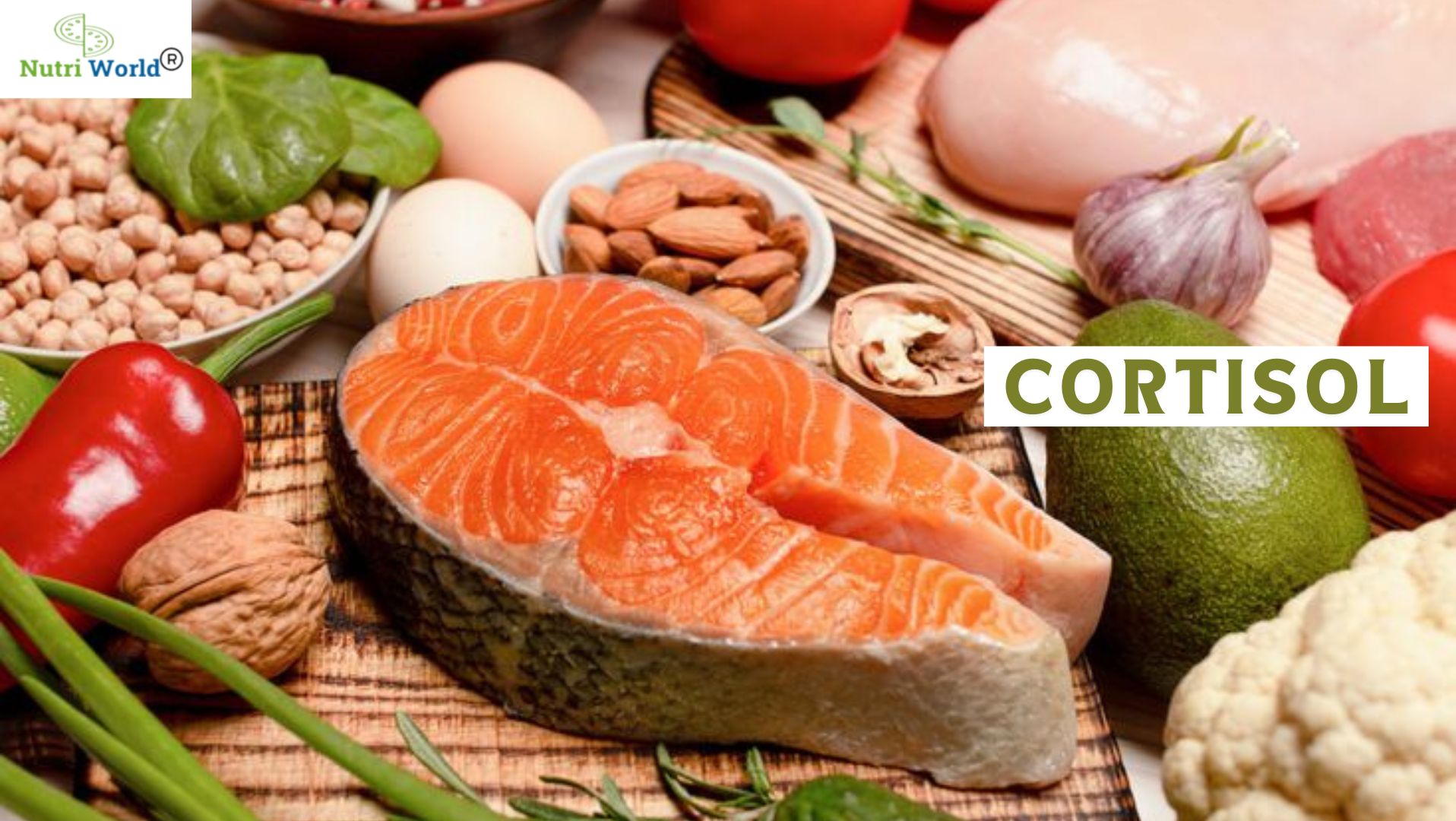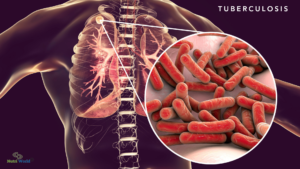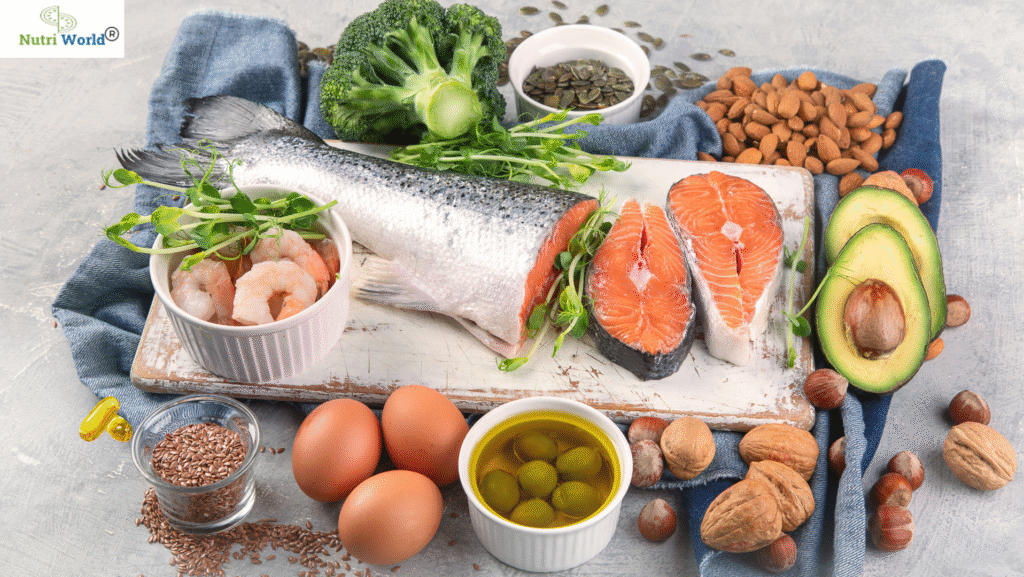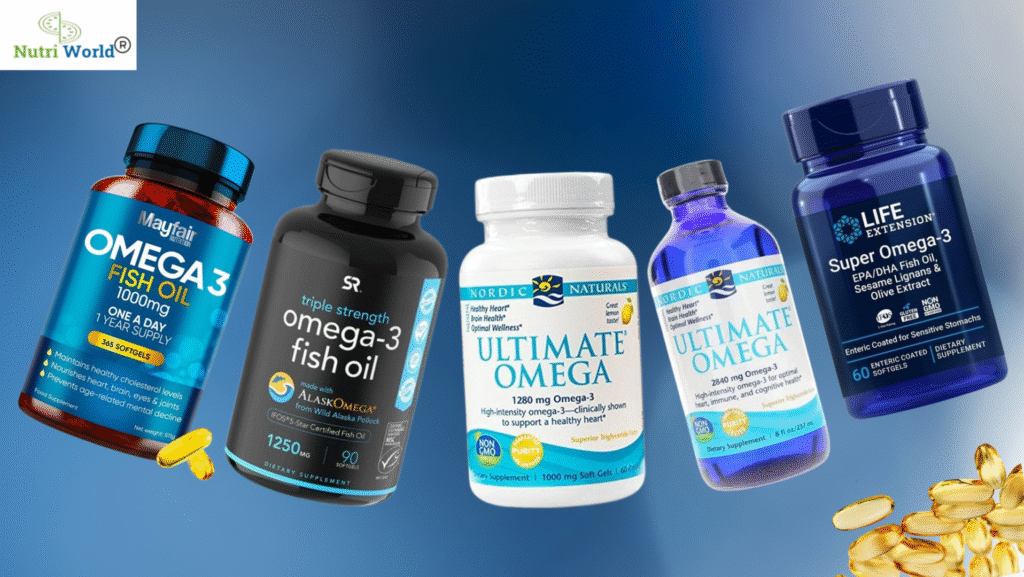By Nutriworld | Dt. Dipanwita Saha
In today’s fast-paced world, stress has become a part of daily life. Whether it’s due to work, relationships, deadlines, or health issues, our body responds to stress by releasing a hormone called cortisol. Often referred to as the “stress hormone,” cortisol plays a vital role in many functions—regulating metabolism, controlling blood sugar levels, reducing inflammation, and helping the body respond to stress. But when cortisol levels remain high for extended periods, it can lead to fatigue, poor sleep, weight gain, high blood pressure, and even infertility.

Cortisol & It’s Role :
Cortisol is produced by the adrenal glands, located on top of the kidneys. It follows a diurnal pattern, peaking in the morning to help you wake up and decreasing at night to prepare you for sleep. While cortisol is essential for survival, chronic stress can cause consistently elevated cortisol, leading to a condition known as adrenal fatigue or HPA axis dysregulation. Symptoms may include brain fog, mood swings, sugar cravings, low energy, and a weakened immune system. Your diet plays a powerful role in regulating cortisol. The right nutrients can support adrenal health, stabilize blood sugar levels, and reduce inflammation—all of which contribute to balanced cortisol production.
1. Complex Carbohydrates: Fuel for a Stable Mind
Carbohydrates are often misunderstood, but they are essential for proper brain and adrenal function. Unlike refined carbs (white bread, sugar, pastries), complex carbohydrates offer a steady release of glucose, preventing the blood sugar spikes and crashes that can trigger cortisol surges.
Best options:
- Oats
- Brown rice
- Quinoa
- Sweet potatoes
- Whole wheat pasta
- Legumes (lentils, chickpeas, beans)
Tip: Pair complex carbs with protein or healthy fats to maintain energy levels and mood throughout the day.
2. High-Quality Protein: For Repair and Recovery
Protein helps repair tissues, build enzymes and neurotransmitters, and balance blood sugar—all of which are critical in managing cortisol. It also supports muscle repair, which can become compromised when cortisol is elevated.
Sources to include:
- Eggs
- Chicken
- Fish (especially fatty fish like salmon and sardines)
- Greek yogurt
- Paneer or tofu
- Nuts and seeds
- Whey protein (for gym-goers or busy individuals)
Aim to include protein in every meal to maintain cortisol balance and prevent energy dips.
3. Omega-3 Fatty Acids: Natural Anti-Inflammatory Power
Chronic inflammation is closely linked to high cortisol levels. Omega-3 fatty acids, particularly EPA and DHA, help lower inflammation and reduce the effects of stress on the brain and body.
Top choices:
- Fatty fish (salmon, mackerel, sardines)
- Flaxseeds
- Chia seeds
- Walnuts
- Fish oil supplements (if dietary intake is low)
Studies show that omega-3s can help lower anxiety and improve mood, making them an excellent tool for stress management.
4. Magnesium-Rich Foods: The Relaxation Mineral
Magnesium plays a vital role in more than 300 biochemical reactions in the body, including regulating the stress response and relaxing the nervous system. Low magnesium levels are often linked to anxiety and poor sleep—both of which raise cortisol.
Magnesium-rich foods:
- Pumpkin seeds
- Spinach
- Avocados
- Almonds
- Dark chocolate (choose 70% and above)
- Bananas
- Black beans
Including magnesium in your diet helps calm the nervous system and supports adrenal recovery.
5. Vitamin C: The Cortisol Buffer
The adrenal glands store and use large amounts of vitamin C to produce cortisol. During times of stress, vitamin C is rapidly depleted, so replenishing it through food is crucial.
Vitamin C sources:
- Oranges and citrus fruits
- Bell peppers
- Strawberries
- Kiwi
- Broccoli
- Amla (Indian gooseberry)
This antioxidant also protects the body from oxidative stress caused by chronic high cortisol levels.
6. Adaptogenic Herbs: Nature’s Stress Helpers
While not foods per se, adaptogens are plant-based compounds that help the body adapt to stress and regulate cortisol levels.
Top adaptogens:
- Ashwagandha
- Rhodiola
- Holy basil (tulsi)
- Licorice root (in moderation)
- Ginseng
Ashwagandha, in particular, has been shown in studies to reduce cortisol levels and improve sleep. You can take it as a supplement or mix it into warm milk at night.
7. Hydration and Herbal Teas
Even mild dehydration can increase cortisol production. Drinking enough water helps flush toxins, supports metabolism, and reduces internal stress.
Best beverages:
- Plain water
- Coconut water
- Chamomile tea (promotes relaxation)
- Green tea (contains L-theanine, which promotes calmness)
- Tulsi tea
Avoid excess caffeine and alcohol, both of which can trigger cortisol spikes.
8. Fermented Foods: Support the Gut-Brain Axis
Your gut and brain are closely connected. A healthy gut can help regulate mood, immunity, and cortisol levels through the gut-brain axis. Fermented foods offer probiotics that support a balanced microbiome.
Great fermented choices:
- Yogurt with live cultures
- Buttermilk (chaas)
- Sauerkraut
- Kimchi
- Idli/dosa batter
- Homemade pickles (not overly spicy or salty)
Pair these with fiber-rich foods to boost the benefits.
9. Foods Rich in B Vitamins: Nourish the Nervous System
B vitamins, especially B5, B6, B9 (folate), and B12, are essential for neurotransmitter production and adrenal function. They help the body manage stress efficiently.
Food sources:
- Whole grains
- Eggs
- Leafy greens
- Milk
- Meat and fish
- Fortified cereals
A deficiency in B vitamins can lead to low energy and poor stress tolerance, so include a variety of these foods in your meals.
Final Thoughts: Eat to Ease Stress
Managing cortisol isn’t about following a strict diet—it’s about making nourishing choices that support your body’s natural rhythm. Prioritize real, whole foods, and stay mindful of how you fuel your body during stress.
Additional lifestyle tips to support cortisol:
- Practice mindful eating
- Sleep 7–9 hours per night
- Engage in moderate physical activity
- Avoid overtraining
- Set boundaries and reduce screen time
Remember, food is more than fuel—it’s information for your body. Make choices that communicate safety, balance, and nourishment to your system.

Hello! I'm Dietician Dipanwita Saha is the founder of Nutriworld and a dedicated clinical dietitian. I focus on helping individuals improve their health through personalized diet plans that are based on scientific principles. I believes that proper nutrition is crucial for healing and maintaining a balanced lifestyle, whether someone is recovering from an illness or managing a health condition
Explore Our Courses:
I provide personalized diet consultations to help you reach your health goals, such as managing weight, recovering from illness, or improving overall wellness. My method is based on scientific nutrition and includes practical meal plans tailored to your lifestyle.
Subscribe to my YouTube channel for more practical diet tips, healthy recipes, and expert insights. I regularly upload videos to simplify nutrition and help you make informed food choices.






